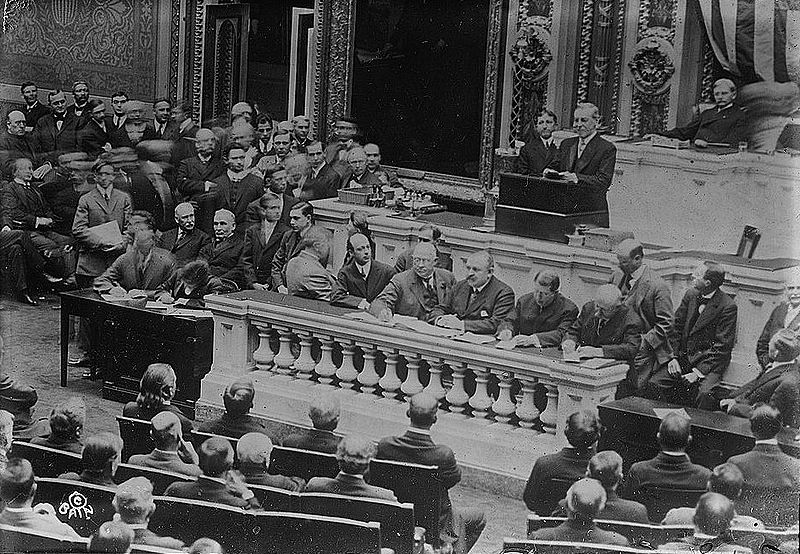The Filibuster and the Environment
In the short run, limiting the filibuster will strengthen the hands of environmental regulators. What about the long run effects?
 The filibuster arguably served a useful function when it allowed the minority to block action in extraordinary cases where its views were especially intense. It became no longer tolerable when it became a routine barrier to Senate action. Last week, the Senate abolished filibusters for nominations (except the Supreme Court). What does this mean for environmental regulation?
The filibuster arguably served a useful function when it allowed the minority to block action in extraordinary cases where its views were especially intense. It became no longer tolerable when it became a routine barrier to Senate action. Last week, the Senate abolished filibusters for nominations (except the Supreme Court). What does this mean for environmental regulation?
The vote last week was along party lines. Yet, although Republicans are protesting loudly, I wonder whether it was in reality a bipartisan outcome in the sense that neither side really wanted to keep the existing practice. If the Republicans had really wanted to avoid the “nuclear option,” all they needed to do was to confirm one out of the three judicial nominees. The fact that they weren’t willing to bend even that much makes me wonder about their strategy. Maybe they were happy for the Democrats to take the blame for curtailing the filibuster, given that the Republicans expect to have a Senate majority a year from now.
In the short run, at least, EPA and other environmental agencies will benefit by having a more sympathetic bench and by filling executive branch positions that have been blocked by the threat of filibuster. In the long run, whenever the same party controls both the Senate and the White House, it will have more ability to control judicial and executive nominations. This will favor environmentalists if that party is the Democrats; industry when that party is the Republicans.
A bigger question is whether the filibuster will survive when applied to legislation and Supreme Court nominations. Filibusters of lower court judges were historically unusual, for a simple reason: no single lower court judge has that much national impact. If they want to, Senate Republicans can probably push the Democrats in taking further steps to limit the filibuster by refusing to allow any legislation to come to the floor, even when it has bipartisan support on the merits. Republicans could justify this as a “protest” against abolition of the filibuster for executive branch and lower court nominees. On the other hand, it’s possible that both sides will decide that they want to preserve legislature filibuster. If so, we could so a compromise reinstating the norm of reserving it for extraordinary occasions.
As always, the future is unclear, but complete abolition of the filibuster is a definite prospect. I have come to think that this would probably be a good idea. People talk about preserving “minority’s rights” via the filibuster. But the very existence of the Senate preserves minority rights — remember that Montana has about the same number of people at San Jose but the same number of Senators as California. In this sense, the Senate is profoundly anti-democratic. We don’t need to make it even more anti-democratic with the filibuster rule.
What would be the effects of eliminating the filibuster completely? Of course, much of the time, we are likely to have divided government and periods of relative calm even without the filibuster. But abolishing the filibuster completely would raise the potential for sharp changes in policy during periods of one-party control of government. That may be bad for the environment if it allows major rollbacks of existing legislation when the GOP controls the government. On the other hand, when Democrats are in control, we would have a much greater chance of seeing national legislation on climate change and strengthening of existing environmental legislation. A decrease in stability isn’t good, but it may be the price of reducing the high barriers that prevent electoral majorities from changing policy.
ADDENDUM
In case you’re interested, the Washington Post has posted a map that shows what the states would look like if we have fifty states with equal populations. The contrast with the existing states tells you something about how unequal state populations are today:
Reader Comments
3 Replies to “The Filibuster and the Environment”
Comments are closed.








Dan,
I like your column except for your final casual statement that “a decrease in stability isn’t good.” This old chestnut may be getting obsolete. With the rapid changes in technology and the vast global changes – political, social, economic – to which the US should respond in its own and the world’s interest, maybe we need a government that can do more than “muddle through” (as we used to say about the British in the 20th Century.) I think a strong argument could be made that the paralysis of the US Congress is one of the greatest problems facing the US and the world. The end of the filibuster and restrictions on Gerrymandering that gives most of the House Members safe seats would go a long way toward improving the functionality of the entire US government.
Prof. Farber, actually Demonization is a rhetorical style that is causing far more destructive political, social, economic and environmental problems than filibustering.
History has proven that far too many people can be influenced by this viciously mendacious rhetorical style, and it is practiced with increasing intensity today. The 2012 election campaigns and the increasingly institutionalized refusals by congressmen to compromise for the best interests of We The People are most recent examples.
If our social scientists cannot find a way to overcome this failure mode, then the future of our democracy shall be in gravest jeopardy. Meanwhile, the poor are paying an increasingly outrageous price for our failures as a society.